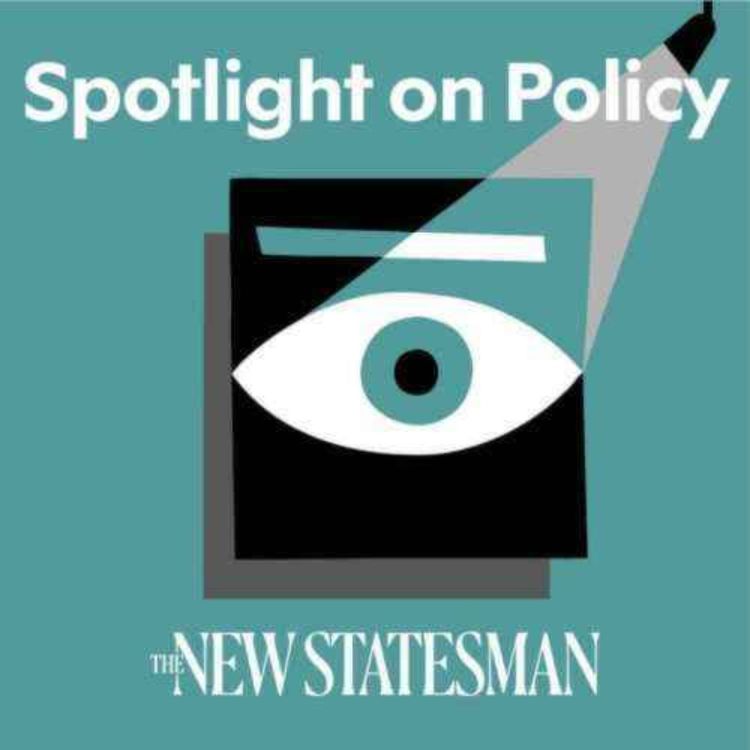Share

Daily Politics from the New Statesman
Legacy tech & the move to sustainable computing | Sponsored
The UK is one of the largest producers of household electronic waste in the world. In 2022 we threw away nearly 24 kilos of things like plugs, mobile phones and computer hardware per person.
The volume of e-waste produced world-wide is predicted to increase from more than 61 million metric tons this year to nearly 75 million in 2030 – and the vast majority of this will go into landfill.
In this special episode, Becky Slack from the New Statesman's Spotlight team meets Michael Wyatt, director of Google ChromeOS EMEA, and Justin Sutton-Parker, CEO of research group Px3, to discuss what businesses and other organisations can do to play their part in reducing the scourge of e-waste, and more broadly how IT can drive sustainability.
--
This episode is sponsored by Google ChromeOS. Trial ChromeOS Flex for yourself on an old PC or Mac for free. Download ChromeOS Flex onto a USB via the ChromeOS website.
--
The New Statesman Spotlight team reports on policy for those who shape it and the businesses it affects. Read their policy reporting at https://www.newstatesman.com/spotlight
SAVE £££ THIS CHRISTMAS:
⭐️ Gift big ideas, bold politics, and proper journalism from just £2
LISTEN AD-FREE:
📱Download the New Statesman app
MORE FROM THE NEW STATESMAN:
❓ Ask a question – we answer them every Friday
⏰ Get our daily politics newsletter every morning
✍️ Enjoy the best of our writing via email every Saturday
More episodes
View all episodes

Blue Labour is splitting the party
32:17|Labour is splitting.Earlier this week we reported that the government is now THIRD in the opinion polls behind Reform and the Tories.Now, as they barrel inexorably towards testing local elections in May, rifts are emerging within the Labour party. This week, Preet Kaur Gill – a personal private secretary to Home Secretary Shabhana Mahmood – announced in the Telegraph, of all places, that she (Preet Kaur Gill) is “Blue Labour”.The intervention sparked fierce debate among MPs, with divisions down ideological lines.Can the party hold it together?Oli Dugmore is joined by Ethan Croft, who has been speaking to Labour MPs this week, and Megan Kenyon. LISTEN NEXT: It's official – Labour are in third place
Are we ready for a “Brexit reset”?
32:29|Keir Starmer is planning on developing a “closer relationship” with the single market.The PM wants to realign with the EU in three key areas to help the free flow of trade: food and farm exports, electricity and emissions trading.But what will this mean for Britain, and how is it going down in Westminster?Anoosh Chakelian is joined by associate political editor, Rachel Cunliffe.
It's official: Labour are in third place
21:09|Christmas polling has revealed that the Tories have edged past Labour into second place in the polls.Nigel Farage’s Reform UK are still sitting pretty in the top spot, with Zack Polanski’s insurgent Greens chasing Labour’s tail.With elections in May incoming, this is the last thing Labour need.
Russia suggested the US “swap” Venezuela for Ukraine
42:22|In 2019, according to a deposition, Russia signalled that they could ease off their support for Venezuela if Washington were to ease its own position in Ukraine. The testimony was delivered by Fiona Hill, a former senior director on the US’s national security council during the first Trump administration.Fiona Hill joins Megan Gibson to discuss that Russian proposal, as well as the US’s strike on Venezuela – and what this means for the global order.
Trump kidnaps Maduro, and Starmer says… nothing?
37:21|Emily Thornberry MP joins us to discuss the US's actions in Venezuela, the legality, and the international response. In the second half of the podcast, the Chair of the Foreign Affairs Committee reflects on Starmer's moves to a closer relationship with the EU.
A look ahead to politics in 2026
52:39|It’s New Year’s celebrations, part 2!Anoosh Chakelian is joined by Ben Walker to discuss the political climate of 2026. From the 10 year anniversary of Brexit and the UK’s relationship with the US, to our ageing population and SEND Reforms, here’s what to expect from next year. If you missed part one of our “Look ahead”, where we discussed the May elections and what’s in store for our political parties, you can find that in the previous episode on your feed.
The May elections will define UK politics in 2026
46:53|Happy New Year from the New Statesman podcast!What will 2026 have in store? Will Labour flop in the May elections? Will the Greens make gains? And will Reform overtake the ailing Conservatives?Anoosh Chakelian is joined by Ben Walker to make their political predictions.
The biggest stories of 2025
01:03:25|As 2025 draws to a close Anoosh Chakelian joined by the New Statesman's associate political editor Rachel Cunliffe, and editor in chief Tom McTague to discuss the biggest domestic and international stories of the year.Daily Politics will return on 1 January 2026.
Merry Quizmas!
38:58|How did Trump's tariffs affect the price of Labubus? Which bear was voiced by Volodymyr Zelensky? And what, crucially, did Katy Perry describe California girls as?Join the New Statesman team for our quiz of the year!